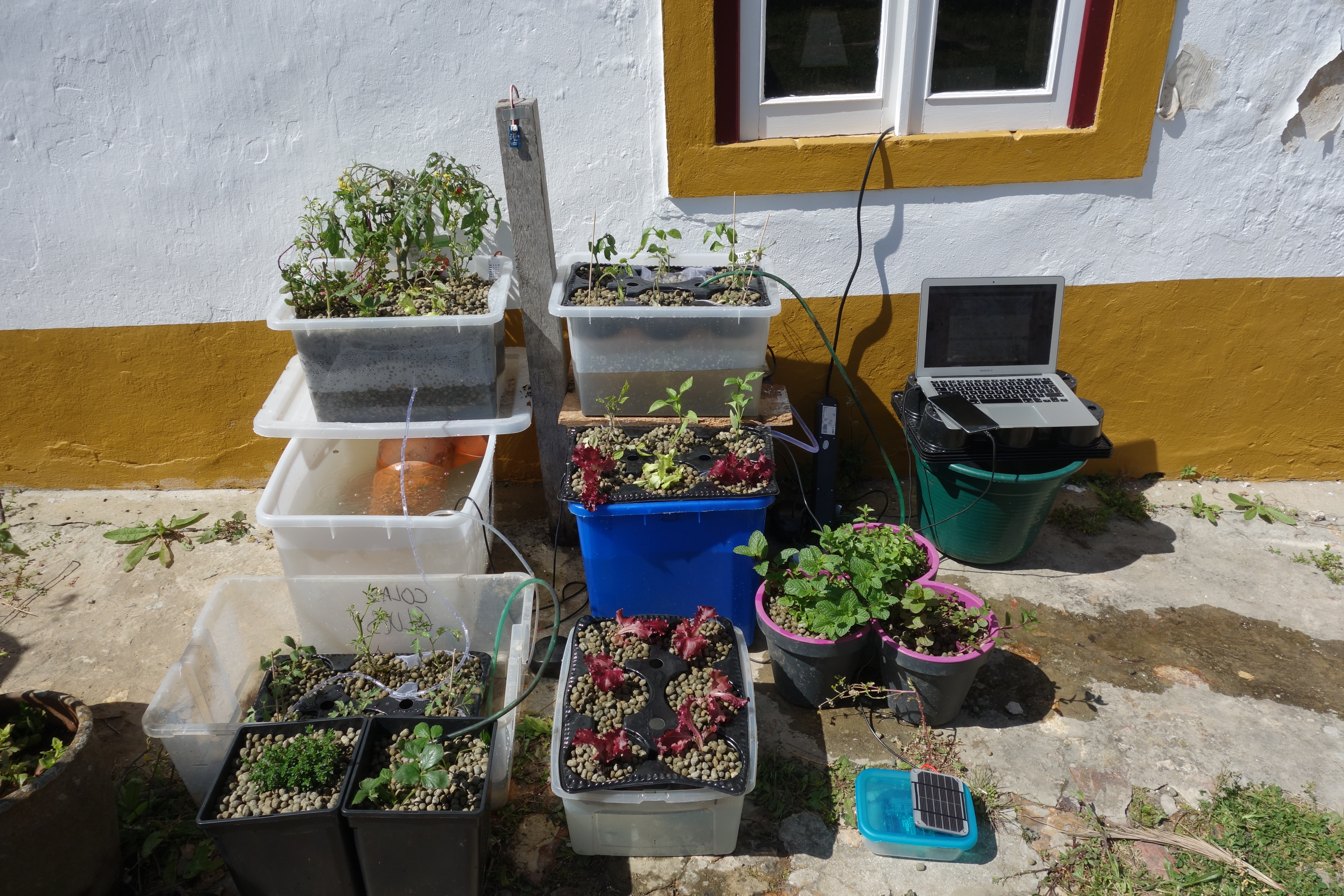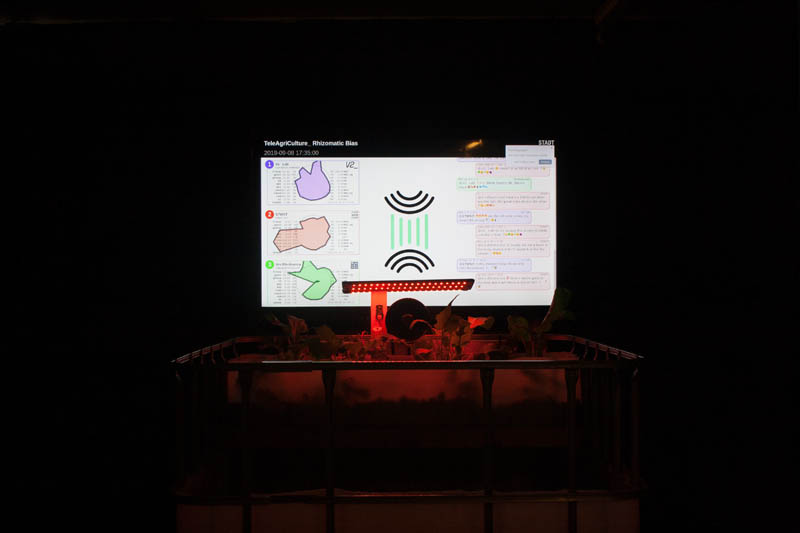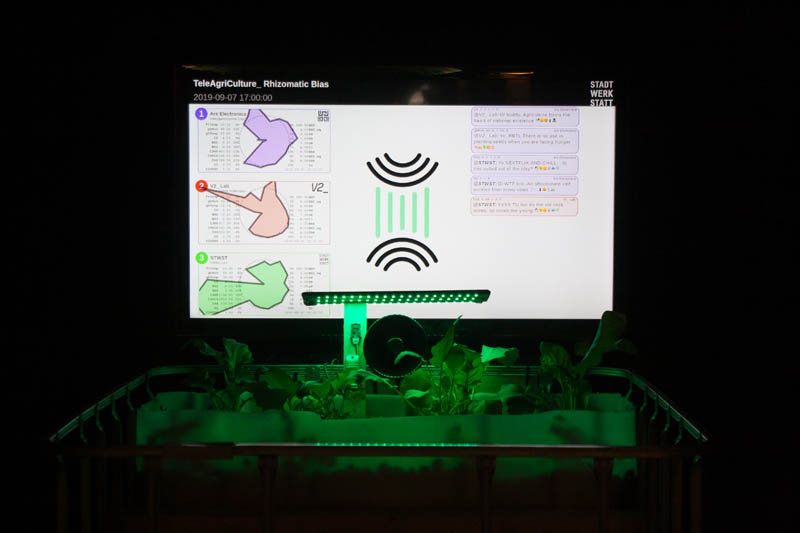STAY UNFINISHED
6.-8.SEPT 2019
STWST48x5.STWST.AT
Totally Ready.
Julian Stadon, Erik Overmiere, Daniel Artamendi and V2_
TeleAgriCulture_RHIZOMATIC BIAS
Installation
Workshop
Continuous
What happens when our food becomes intelligent? How will e-agriculture and AI biases reconfigure what we eat? TeleAgriCulture_Rhizomatic Bias, aims to explore how bias grows in machine learning and intelligent systems, through creating a sensory data based social network for aquaponics systems, allowing them to grow friendships with similar biospheres and cyberbully those that are perceived to be abnormal.
What happens if biotopes start chatting to each other using social network communication models? TeleAgriCulture_Rhizomatic Bias, aims to explore how bias grows in machine learning and intelligent systems. Through a digital network three aquaponic systems are enabled to learn about each other and communicate via light and sound with one another. Through learning sensory information about each other the biospheres form social relationships, based on how similar they are to one another and how statistically normal they are. Those with the most in common will attack the weaker one, in effect cyberbullying it. These artistic provocations point at the much larger problems we face when our emotional biases and social constructions affect the way artificial intelligentsystems evolve and impact on life.
Julian Stadon is an Australian artist/curator/academic working with augmentation aesthetics, embodied data ecosystems, data body management, post-biological
identity & how we interface with the Anthropocene. Studying Marine Biology, Fine Arts and a Master of Electronic Art, Stadon’s PhD focuses on howtransdisciplinary arts in practice, can better our understandings of bio-digital
convergence.
TeleAgriCulture is a community platform for artists working in the field of Post-Anthropocenic Art and Design, providing a crowd/cloud data exchange network for information exchange that integrates the practice of micro-farming.
The project is supported by V2_ Lab for Unstable Media. It was conceived at the MIT Global Community Bio Summit in October 2018 and first prototyped at Cultivamos Culture in March 2019. TeleAgriCulture inspired by the recent explosion of agricultural technologies and methods in the Netherlands such as saltwater farming and builds on current artistic discourse in relation to ecology, the Anthropocene and agency.
MARArt.org
TeleAgriCulture.org
julianstadon.net
Documentation



